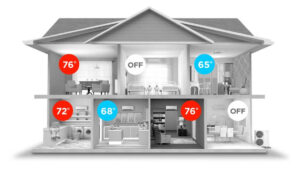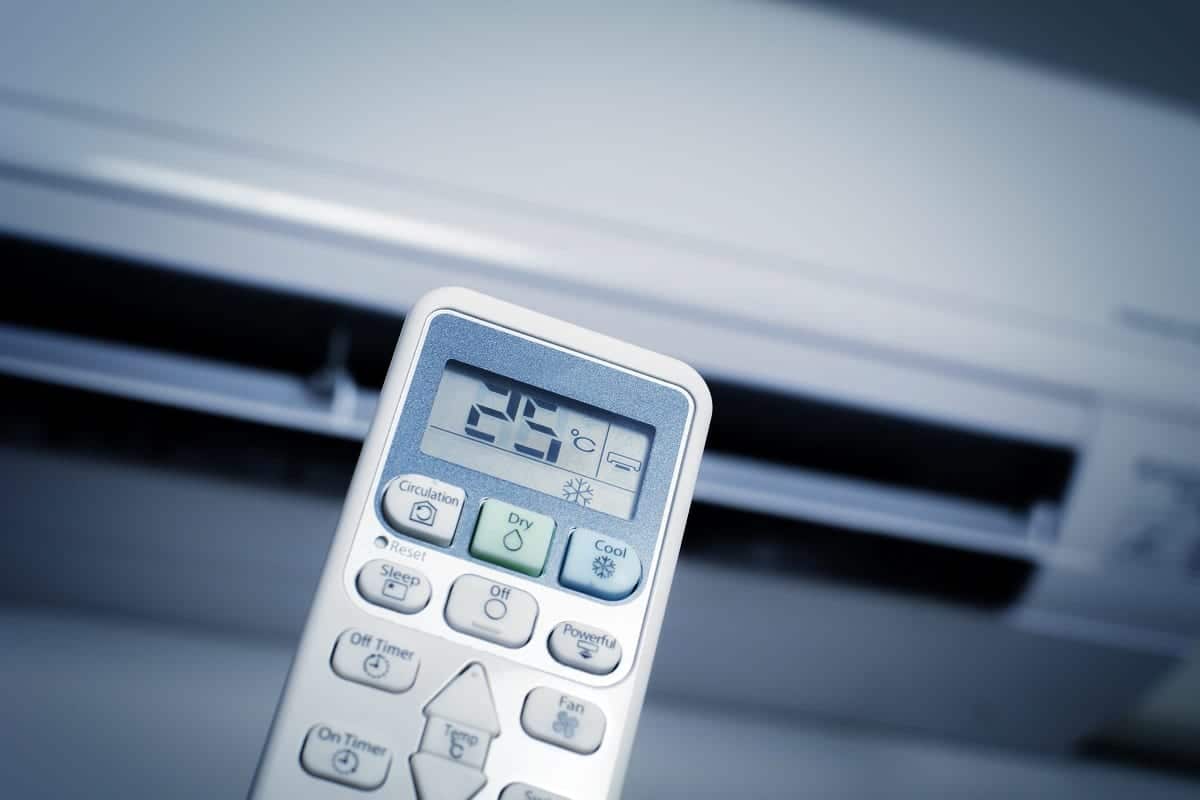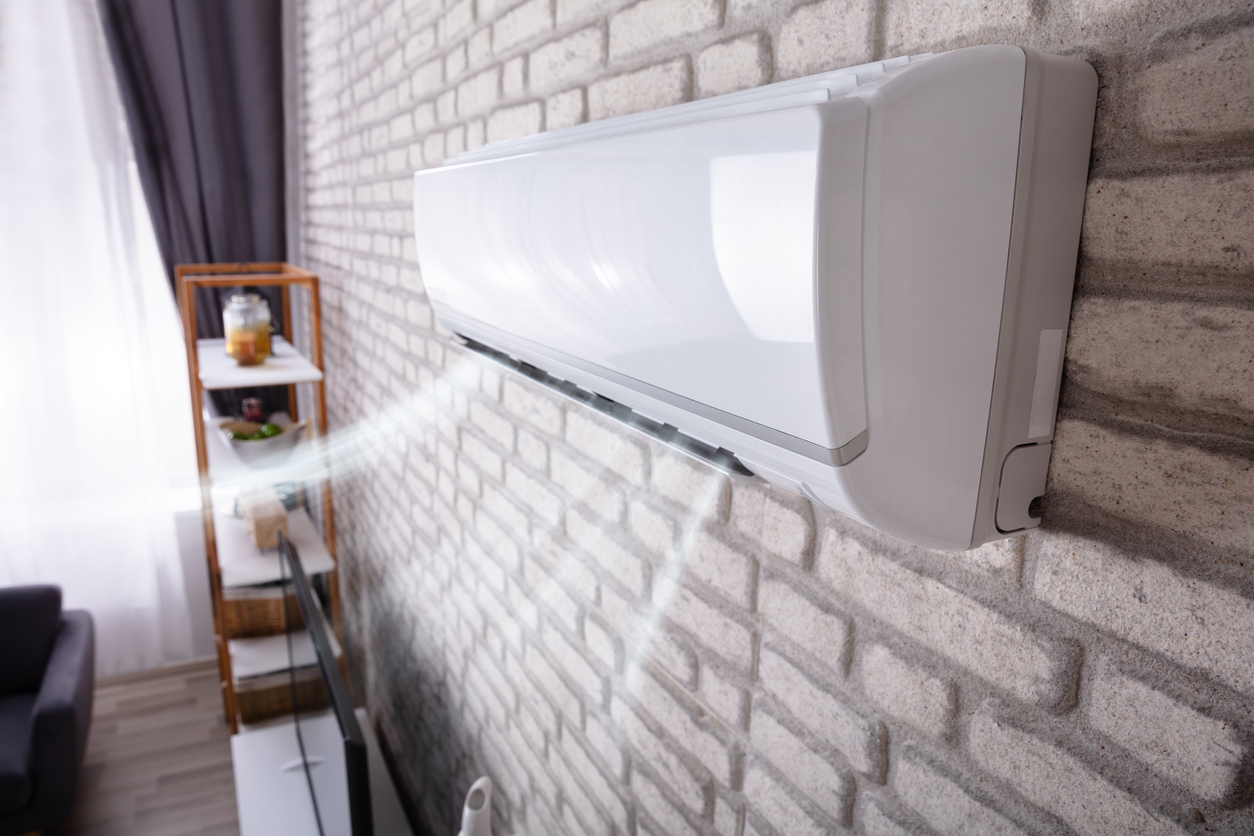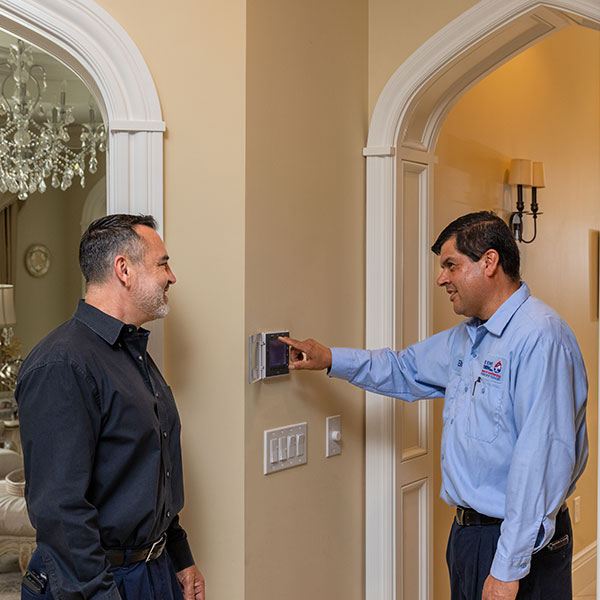When investing in a new furnace, it is important to choose the right size and type for your home. There are many factors that can influence correct furnace sizing including what part of the country you live in, the square footage and layout of your home, insulation, BTU output, and what you hope to get out of your furnace.
Adding an oversized furnace to your home will cost homeowners comfort and efficiency, as well as lessen the lifespan of the system and contribute to higher energy bills.
As homeowners research new furnace installations and professional HVAC installers, they will begin to consider many more variables to ensure that they are choosing not only the most efficient furnace, but also the most qualified professionals.
Where the Home is Located and Square Footage
San Diego has a unique climate for heating and air conditioning needs. It is a milder climate, but with significantly different needs depending on how close to the coast or how far inland the home is located. San Diego falls into zones 1 and 2 of the national HVAC zoning standards. Professional HVAC contractors use this as a guide to determine the sizing of furnaces and air conditioners.
A lot of science goes into the sizing of new furnace installations, and country zones, square footage and tonnage all come into play. They work together to create the perfect system and provide comfortable temperatures for your home.
Heating guides consider BTU’s per square footage (don’t worry, we will go ver BTU later) based on what climate zone you are located in, while taking into consideration home insulation and operating temperatures. Most HVAC experts place sizing for furnaces in moderate climates such as San Diego at approximately 25-40 BTU’s per square foot.
But, square footage and climate alone will not design the perfect system. Other variables considered when sizing a new furnace are how many levels the home has, windows, and the style and frame type of those windows. These variables relate to heat loss and higher efficiency units can help control the cost related to heat loss. It is also a good idea while searching for a new furnace, to invest in upgraded insulation and consider dual pane windows. Hero programs have a number of great financing options available for energy efficiency upgrades for homeowners that include new high energy efficient furnaces and window upgrades.
How the Home Interior Layout is Designed
Many home layouts will affect the necessary heat output and different furnace sizes factors. Homes with many windows allowing sunlight throughout the winter will need a specific setup. Also, homes with lots of doors and windows allow for more heat loss. Insulation will play a role in heat loss. Aside from whether a home has many large or small rooms, even multiple stories or an attic can also affect how heated a house gets.
Homes with multiple stories, large spacious rooms and high ceilings will be harder to heat evenly and efficiently. Ductless mini splits have been increasing in popularity due to their ability to gain more zone control to achieve a higher energy efficiency, without overworking in such homes with large spaces.

BTU’s, What Are They and Why Do They Matter?
BTU, or British Thermal Units, are the standard rating of fossil fuel appliances such as furnaces and water heaters. The BTU rating refers to the heating capacity during input and output, as well as the amount of gas burned and the percentage of heat loss.
Proper sizing and choice of BTU ratings will affect the efficiency and heating ability of the gas furnace, and should be calculated properly to achieve the best possible heating solution for your home.
During replacements and sizing, professional and reputable HVAC contractors will take into consideration BTU. Certain BTU requirements and sizing will be based on climate and square footage. These certified technicians will perform complex calculations to ensure the furnace installed will adequately heat your home to the highest efficiency possible.
Furnace Efficiency
Furnace efficiency is also referred to as Annual Fuel Utilization Efficiency. Just like BTU’s, there is a lot more than a simple number to be considered when talking about efficiency. However, in simple terms, the higher the percentage of AFUE, the more heating goes into the home rather than loss through varying ways (windows, doors, poor insulation, etc.).
Percent efficiency is one reason most HVAC contractors recommend replacing systems that are 15 years or older, even if they may be working well. Furnace systems will lose efficiency over time, and older systems did not have the AFUE advancements that have been made in more recent years. Homeowners can save money on heating costs and energy bills by replacing inefficient systems with a properly sized furnace designed specifically for their unique space.
Insulation
While insulation does not have anything to do with furnace size, it has everything to do with achieving the best heating efficiency and evenness within the living area of their home. Insulation is one of the easiest ways homeowners can upgrade the effectiveness of their current systems and add value to new systems being installed.
Undersized and oversized systems will greatly affect how furnace, and air conditioning systems work. Often, homeowners who have incorrectly sized systems installed will not only face constant repairs due to systems continually cycling on or off, but and will also encounter higher utility bills due to wasted energy.
The right HVAC contractor will take into consideration all the necessary variables of system size for the home and design a system tailor-made for homeowners, which could ultimately cut down energy costs and help customers save a little extra money. Home comfort advisors walk homeowners through their estimates, advising them on why a specific type and size of the system is recommended. By investing in the right contractor and the right size system, homeowners can expect that their system will last as long as possible, often beyond normal life spans. Of course, regular maintenance is a must when buying a furnace.
All Bill Howe Heating & Air Conditioning Home Comfort Advisors spend significant time with each homeowner to understanding their home comfort needs, calculating the size need based on all factors, and making recommendations in several economical options for homeowners to choose. They are happy to answer any additional questions you may have and we can guarantee they will provide the most superior service.
Schedule an appointment with the qualified professionals at Bill Howe for your free in-home evaluation by calling 1-800 BILL HOWE (245-5469) today.




